Do you have a question about this product?
Ask us your question
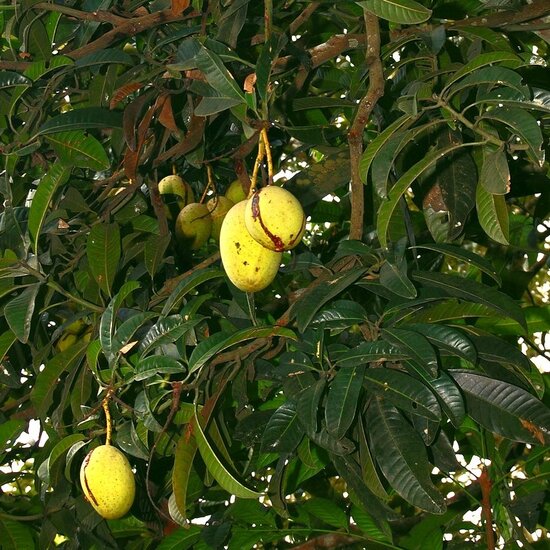
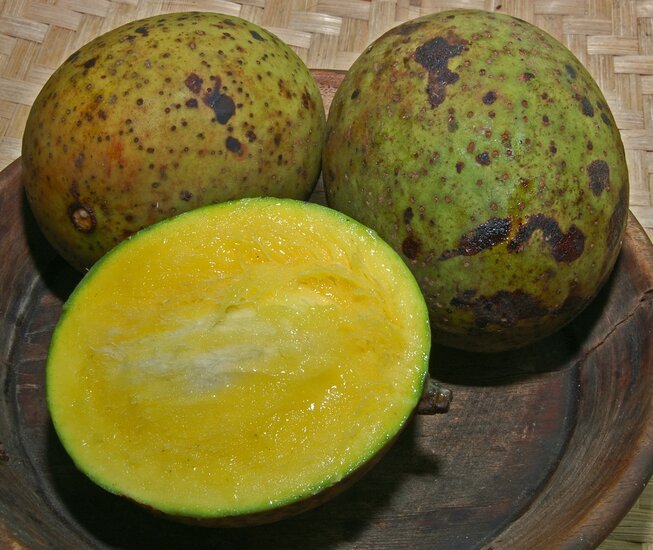
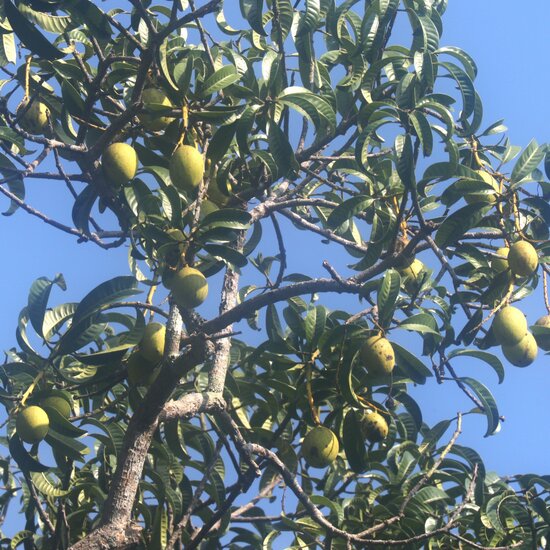
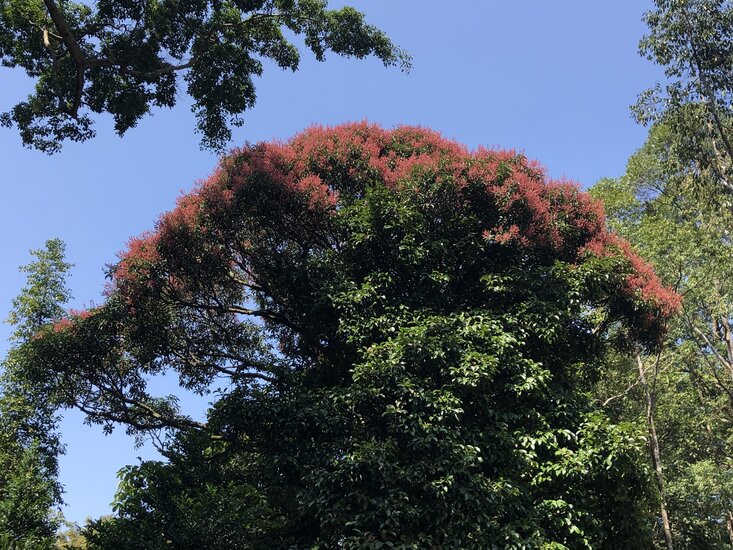
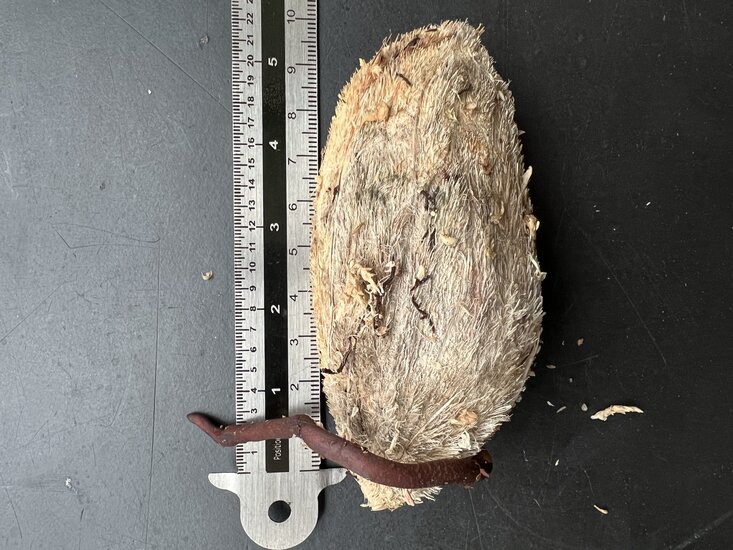





Product description
The Horse Mango is a rare species of mango that is native to tropical lowland forests of Southeast Asia, especially Borneo and Sumatra. This mango species is also known as the smelly mango because of its strong odor, which is often compared to durian. The pungent smell can be off-putting, but for those who can get past it, the fruit offers a unique flavor that is both sour and slightly sweet. For this reason, it is a highly valued fruit at local markets. The flesh of the fruit is mainly eaten raw, but its distinctive taste also makes it a popular ingredient in sambals, curries, and sauces. Be careful with unripe fruits, as the juices are irritating to the skin and mouth.The tree itself can grow up to 40 meters tall in the wild, although it remains smaller when grown in pots. Its small flowers are yellow to pinkish and relatively modest in appearance. They do however grow on a large, striking red inflorescences that make for a stunning display. Unlike most mango species, it does not flower year round. Depending on the region where it grows, it flowers somewhere between April and September. Due to it’s naturally high disease resistance, this species of mango is often used to graft the common mango (Mangifera indica).
It thrives in the humid, tropical climate of Southeast Asia and prefers fertile, well-draining soils with regular rainfall. Therefore, when grown indoors, it is important to provide ample water and maintain high humidity with a minimum temperature of around 10 degrees Celsius. Young plants can tolerate shade, however older plant grow well in full light.
Sowing description: Sow the seeds on their side in sowing mix at a temperature of around 25-30 degrees Celsius. Keep the soil constantly moist.
Product specification
Family:
Anacardiaceae
Scientific name:
Mangifera foetida
Common name:
Horse mango
Native to:
Southeast Asia
Sowing time:
All year round
Difficulty level:
Intermediate
Minimum temperature:
10 degrees Celsius
Do you have a question about this product?
Ask us your question
Product specification
Family:
Anacardiaceae
Scientific name:
Mangifera foetida
Common name:
Horse mango
Native to:
Southeast Asia
Sowing time:
All year round
Difficulty level:
Intermediate
Minimum temperature:
10 degrees Celsius
Add review
Write a review about this product.
Reviews
No reviews yet



